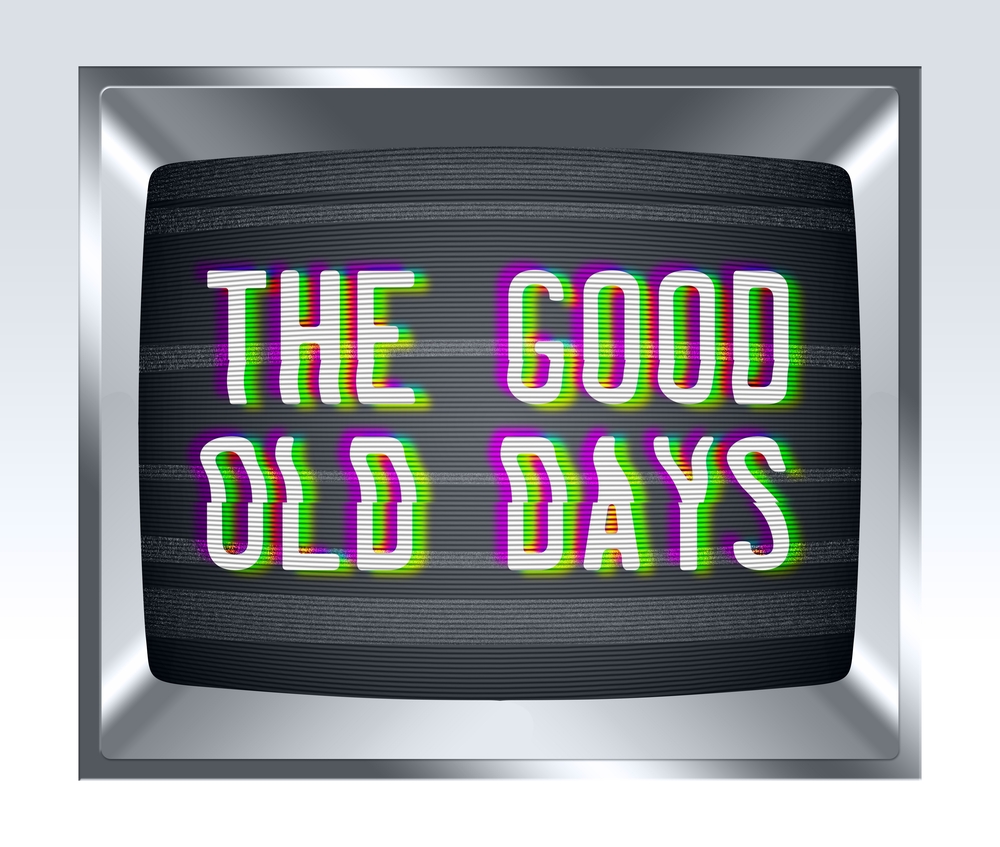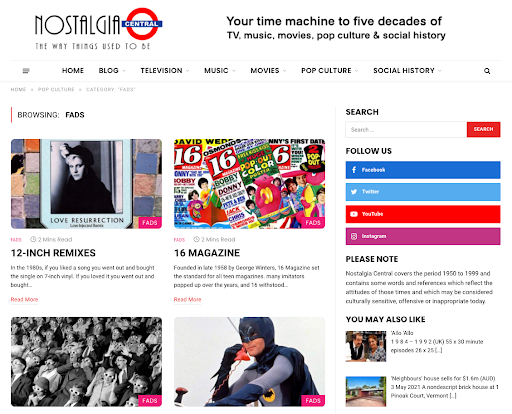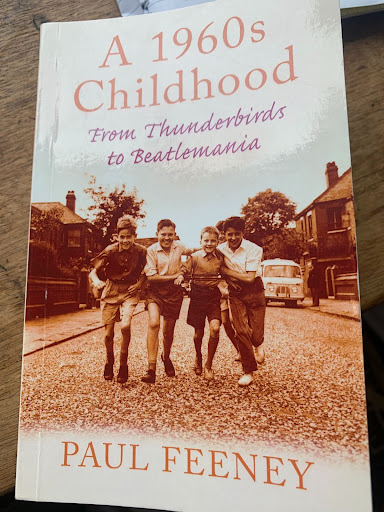
Nothing wrong with pining for the ‘Good Old Days’
It's a corny gag that nostalgia ain't what it used to be, but as you get on in life, this feeling can intrude in unlikely ways.
My blog last week about the switch away from cash triggered one reader, Ian from Qld, to reflect on the 'good old days'.
"Bring back the 1950s and 60's. Things were more simple - you could leave your house and car unlocked. Cars were four-seaters… no radio… wind up windows, no electronics," he wrote.
His comments and a book my twin sister sent me called A 1960s Childhood - all about the lollies we ate, the TV shows we watched, and the toys we played with - got me thinking.
How helpful is indulging in nostalgia as year by year the world perhaps changes faster than we do?
Or is it an understandable and somewhat comforting reaction to changes we don't always understand or particularly like?
As the name suggests, some claim nostalgia is a kind of disease beyond the dictionary definition of "a sentimental longing or wistful affection for a period in the past."
The term was coined in the late 1600s by a Swiss doctor to diagnose the homesickness felt by mercenary soldiers. Since then, it's become a virtual industry thanks to YouTube and friends. You need never be bereft of sound and vision from your past.
Check out Nostalgia Central, which promises a time machine covering five decades of TV, music, films, pop culture and social history.

In a warning to younger players, it warns:
“Nostalgia Central covers the period 1950 to 1999 and contains some words and references which reflect the attitudes of those times and which may be considered culturally sensitive, offensive or inappropriate today.”
But how much nostalgia is too much? Research suggests it's a legitimate coping strategy that lessens loneliness and improves well-being, but we can delude ourselves if we don the rose-coloured spectacles too tightly.
"If you look back and idealize what happened, you might compartmentalize the past and remember events differently from how they actually occurred," says Dr Kate Cummins, a US clinical psychologist.

The gifted book which has stimulated so much nostalgia for me is called A 1960s Childhood—from Thunderbirds to Beatlemania by Paul Feeney. It reflects on the British experience, and maybe there is an Australian equivalent. Has anyone come across one?
Paul's descriptions of how we ate boiled eggs for breakfast, listening to the radio, his accounts of TV advertisements, toys like Play-Dough and all the Ladybird books are uncanny.
It's been a guilty pleasure to read the book, but I am less nostalgic for material things than the way of life which has gone.
Although most of us are much better off now, kids then had incredible freedom. We spent hours on bikes or foot playing in streets, parks and woods far away from our parents. We got hold of fireworks and other forbidden delights.
Paul Feeney outlines how due to prosperity, more motor vehicles made the roads less safe, and TV developed better children's programming to keep us indoors.
But what do you feel nostalgic about, and how do you think about nostalgia in general? You don't have to prefer to wind up windows in the car, but there might be something from the past you do miss. Tell us about it.

